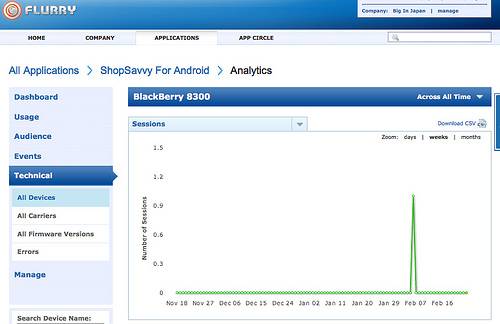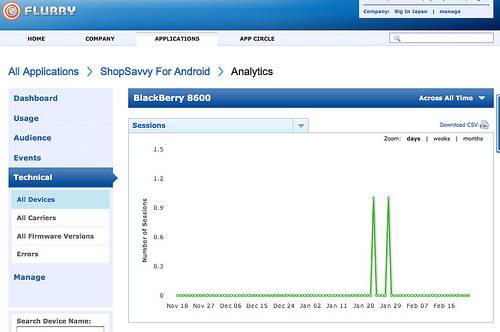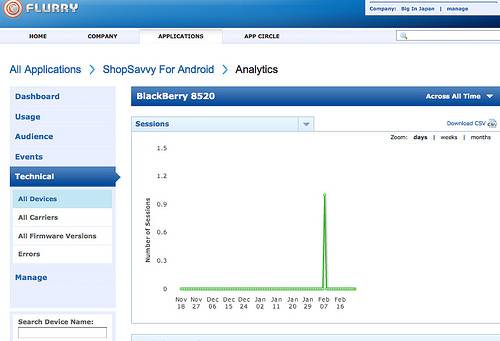The Android version of a popular barcode-scanning application has been spotted running on several different BlackBerry devices according to the app’s maker ShopSavvy. In a recent blog post, the company revealed that, despite not having an official BlackBerry version of its smartphone application available, its analytics program shows that its Android app was run on various BalckBerry devices, including the BlackBerry 8300, 8600 and the 8520.

Even more interesting is the fact that these apps were run somewhere in Waterloo, Ontario, Canada – the same city where Research in Motion (RIM), the manufacturer of BlackBerry devices, has its headquarters.
This report gives more credence to the rumor that RIM is working on a way for its devices to run Android applications using some sort of virtual machine software. Originally, early reports stated that RIM was looking into using the Dalvik virtual machine, the same software as is used on Android devices. Later reports said those plans had been dropped in favor of software developed internally at RIM.
Interestingly, all previous rumors were solely focused on this development being for the purpose of running Android apps on RIM’s new tablet computer, the PlayBook. Now it seems that RIM’s plans may be broader than previously imagined. If RIM is testing Android apps on regular BlackBerry phones, it could mean the company is planning to support Android across its entire ecosystem of devices – not just the QNX-based PlayBook.
ShopSavvy’s log files can’t pin down the software that’s making it possible to run these Android apps on the BlackBerry devices, only that such an event has occurred. For proof, ShopSavvy posted screenshots of its analytics program to disquiet skeptics’ comments.



Assuming this is not a fluke of some kind, it would be an incredible development for the mobile industry, and yet another step in terms of platform consolidation. Instead of fighting for the #3 (or in the post-Nokia/Microsoft era, possibly the #4 spot), RIM would concede that its BlackBerry application ecosystem isn’t strong enough to make it a contender in the new mobile landscape. But would riding on Android’s coattails be enough to save RIM from obsolesce? With its diminishing importance in the enterprise as well, with more and more companies allowing employes to use their own smartphones at work, RIM has more challenges ahead of it than just needing a larger selection of apps.

















